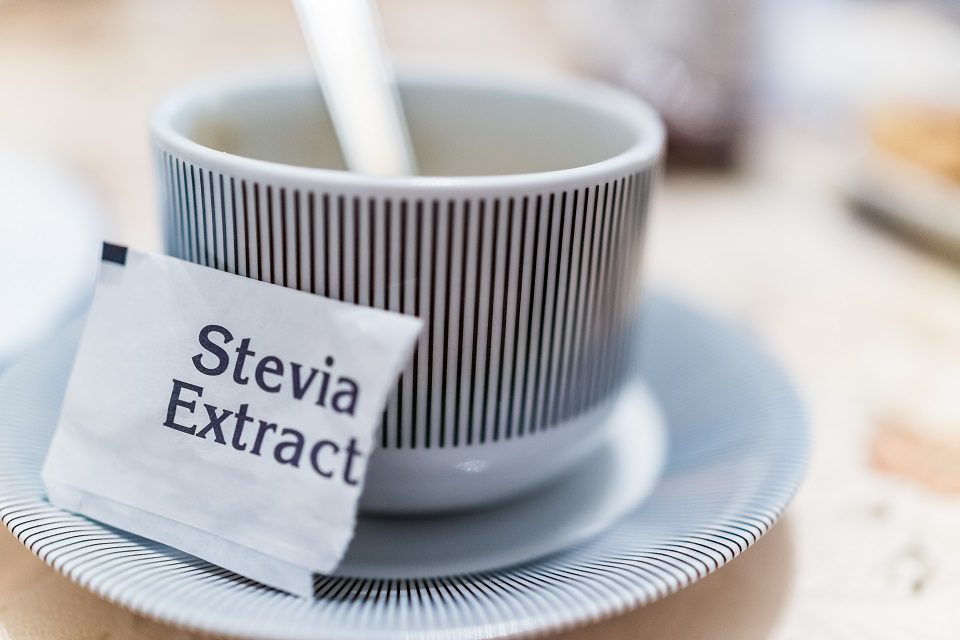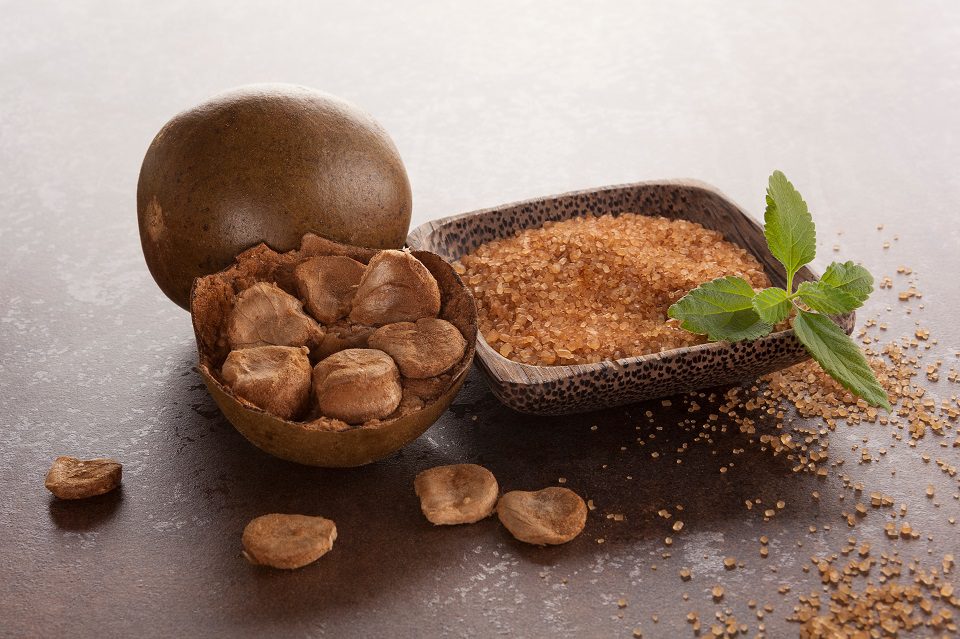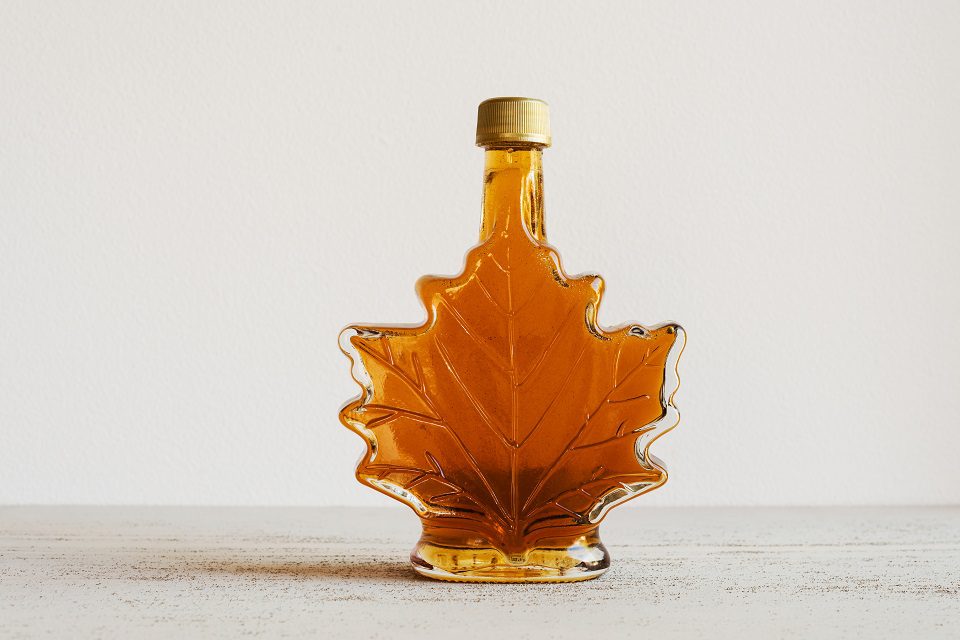Have you been wondering what you could replace sugar with?
Sugar is definitely the number one enemy of Americans, and we can even say that our addiction to it has reached epidemic levels in the last decades. Sugar is one of the main factors of obesity, so it shouldn’t surprise us that more than 4 in 10 adults are obese right now in our country since we are following a Western pattern diet.
And it’s not just about obesity but the fact that high sugar consumption could easily lead to several health problems, including gout, type 2 diabetes, heart disease, depression, fatty liver, dementia, and even certain types of cancers. Luckily, some healthy sugar alternatives out there could keep sugar-related conditions at bay (ahh, and they offer some health benefits, too).

1. Stevia
We all have heard about stevia at some point, but maybe we never took the time to research the benefits of replacing table sugar with this natural sweetener. If that’s the case for you, too, fear not; we’ve gathered all the pieces of information you need to know.
First off, stevia is extracted from the leaves of a shrub, known by scientists as Stevia rebaudiana, and it was actually discovered back in 1931 by two French chemists. Due to medical advances and a mountain of scientific research, now we know that stevia contains zero calories while being almost 350 times sweeter than the sweetener we generally use.
Studies also point out that stevia tastes slightly different than the white deadly stuff. In addition, it seems that, unlike sugar, stevia has some health benefits to offer. For instance, did you know that stevia consumption could actually lower blood sugar, insulin levels, and blood pressure?
It does all that due to its powerful nutrients and phytochemicals. So, it might be a good idea to make the swap to stevia.
2. Xylitol
Although it doesn’t sound healthy at all, we can assure you it is actually healthier than regular sugar. Xylitol is basically a type of sugar alcohol extracted from birch wood or corn. It can be found in a wide range of vegetables and fruits, too.
Xylitol packs around 2.4 calories per gram, meaning that it has 40% fewer calories than the refined kind. Yet, what really makes this type of sugar a pretty good alternative is actually its lack of fructose. And since fructose is basically one of the most dangerous ingredients found in sugar, xylitol deserves its healthy credit.
Plus, xylitol consumption doesn’t raise your insulin levels or blood sugar, making it a good option for people with diabetes.
3. Erythritol
Yep, this one sounds a little bit unorthodox, too, but, believe us, by comparison, erythritol is the definition of a saint. Like xylitol, erythritol is also a type of sugar alcohol, but, unlike the first one, erythritol actually contains fewer calories (0.24 calories per gram).
The best part? It tastes almost exactly like the regular deal. So, it might be a pretty easy switch between the two, especially if you cannot live without sweeteners. And although it tastes almost the same, erythritol is actually healthier because once it is consumed, erythritol is absorbed instantly into your bloodstream, being eliminated in your urine super fast. This means that, unlike sugar, erythritol doesn’t have enough “time” to harm your body.
Besides, studies suggest that erythritol doesn’t raise your insulin levels, triglyceride levels, blood sugar, or cholesterol. So far, so good, but a recent study seems to point out that erythritol could contribute to weight gain. Still, more research is needed to understand the connection. All in all, erythritol is definitely a healthier choice!

4. Monk fruit sweetener
As the name suggests, monk fruit sweetener is extracted from the monk fruit, also known as luo han guo. It’s a pretty awesome alternative to sugar since it contains zero calories, being 250 times sweeter by comparison. Naturally, monk fruit packs fructose and glucose, but during processing, both of them are removed.
The only thing that’s being left is mogrosides, powerful antioxidants that give monk fruit its sweetness. In several studies, mogrosides were actually responsible for inhibiting cancer growth. On top of that, it seems that monk fruit sweetener has almost no influence on your calorie intake, insulin levels, and blood glucose levels.
Monk fruit sweetener is definitely healthier than regular sugar, but before consuming anything that contains this sweetener, make sure it is not mixed with other types of sweeteners. Most monk-fruit-sweetened drinks still pack incredible amounts of other sweeteners, so please, check the labels.
5. Yacon syrup
Yacon syrup comes from a plant native to South America, called the yacón plant, or Smallanthus sonchifolius. This syrup packs around 50% fructooligosaccharides, a type of sweet molecule our bodies cannot digest; that’s why yacon syrup has one-third of the calories of our normal favorite sweetener (1.3 calories per gram).
Research shows that yacon syrup’s high content of fructooligosaccharides offers a plethora of benefits, including reducing glycemic index, aiding weight loss, and minimizing the risk of developing colon cancer.
Some scientists even point out that fructooligosaccharides could maximize feelings of satiety, which may help you eat less. They seem to be gut-friendly, too. However, it also appears that large amounts could lead to diarrhea, excessive gas, and digestive discomfort.
6. Coconut sugar
Maybe consuming coconut sugar ten years ago would have attracted a lot of attention, but now many people tend to opt for this natural sweetener because, well, it’s natural. Additionally, coconut sugar has many nutrients, such as calcium, potassium, zinc, and iron.
It scores lower on the glycemic index, too, and that’s probably due to its inulin content. Inulin (a type of soluble fiber) is commonly associated with slow digestion, increased feelings of fullness, and a healthier gut, so it definitely makes sense why coconut sugar is better than regular sugar.
Would you replace refined sugar with coconut sugar? If you have been thinking of that, here is our coconut sugar recommendation!
7. Honey
We just couldn’t leave “honey” unmentioned… Honey is by far one of the healthiest alternatives for sugar, if not the best. This golden liquid is an excellent and delicious source of powerful antioxidants, all of which have been associated with numerous health benefits, including reduced inflammation in the body, reduced chances of developing type 2 diabetes, and minimized cancer risk.
It seems that honey can decrease glucose levels and hyperglycemia, too. However, not all types of honey are created equal. That’s why you should always search for raw/organic honey.
Which one is which?
As a general rule, raw honey has a cloudy and opaque texture due to honeycomb debris, whereas most types of processed honey appear super clear and smooth.

8. Maple syrup
There’s a ton of dispute regarding maple syrup, and although the vitamin content in it is almost nonexistent, it doesn’t mean that it’s not healthier. It might not have vitamins, but it surely does contain some minerals like manganese, iron, zinc, copper, magnesium, calcium, and a decent amount of potassium.
Maple syrup packs some antioxidants, too. These antioxidants are called oligosaccharides, and several studies suggested that they may be effective against type 1 diabetes. However, we should not forget that maple syrup is still pretty high in sugar, so please don’t pour more than needed.
9. Molasses
Have you ever heard of molasses? No? Well, it’s basically a brown liquid that has a syrup-like consistency. Molasses is made from boiling down sugar beet juice or sugar cane (native to India and Southeast Asia). Unlike regular sugar, molasses packs a nice number of minerals and vitamins, as well as antioxidants.
Being a decent source of potassium, calcium, and iron, molasses consumption may benefit both heart and bone health. All in all, molasses is a better replacement for refined sugar; however, its consumption should be calculated and limited since, in the end, it is still a form of sugar.
10. Cinnamon
Who said that cinnamon couldn’t be a sugar alternative? Apart from tasting heavenly, cinnamon has a plethora of health benefits. Ahh and it’s versatile, too; you can add it to almost everything. Plus, it packs powerful medicinal properties.
Due to its organic compounds called cinnamaldehydes and antioxidants, cinnamon is able to reduce inflammation in the body, cut the risk of heart disease, regulate metabolism, minimize insulin resistance, lower blood sugar levels, and prevent Alzheimer’s disease.
This spice definitely gives you a health punch when consumed, so it would be best to add it to your diet more often.
11. Vanilla beans
Vanilla is definitely a tasty sugar substitute that can easily be added to coffee, desserts, and breakfast grains. Unfortunately, vanilla beans tend to be pretty expensive. Now, you’d most likely pay around 10 bucks for a bean, but it might be an idea to buy in bulk if you decide to replace refined sugar with vanilla beans for good.
Eventually, it is worth the money, especially since the main compound in vanilla has been linked to several health benefits, including decreased risk of developing Parkinson’s and Alzheimer’s disease. On top of all that, it seems that vanilla beans may aid in weight loss, relieve cough symptoms, maintain a healthy mouth cavity, and cleanse the skin.
If you are curious about foods that are beneficial for your health after you have had surgery, read this article and quench your thirst for knowledge!














One Response
Monk sugar substitute, but why it is not available now, I used to get out from Costco.